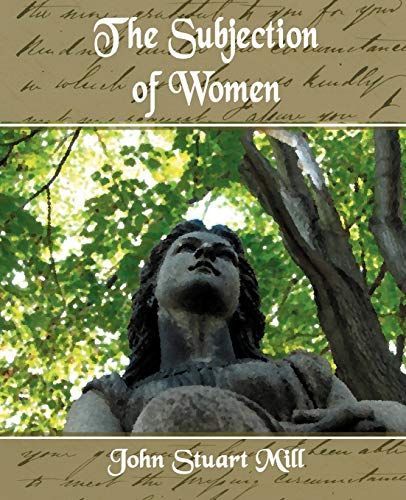
The Subjection of Women
"The Subjection of Women (1869) offers both detailed argumentation and passionate eloquence in opposition to the social and legal inequalities commonly imposed upon women by a patriarchal culture. Just as in "On Liberty", Mill defends the emancipation of women on utilitarian grounds. Mill was convinced that the moral and intellectual advancement of humankind would result in greater happiness for everybody. The Higher pleasures of the intellect yielded far greater happiness than the lower pleasure of the senses. He conceived of human beings as moral and intellectually capable of being educated and civilized. Mill believed everyone should have the right to vote, with the only exceptions being barbarians and uneducated people. Mill argues that the reason people should be able to vote is to defend their own rights and to learn to stand on their two feet, morally and intellectually. This argument is applied to both men and women. Mill often used his position as an MP to demand the vote for women, a controversial position for the time. In Mill's time a woman was generally subject to the whims of her husband and/or father due to social norms which said women were both physically and mentally less able than men, and therefore needed to be "taken care of." Contributing to this view were social theories, i.e. survival of the fittest and biological determinism, based on a now considered incorrect understanding of the biological theory of evolution and also religious views supporting a hierarchical view of men and women within the family. The archetype of the ideal woman as mother, wife and homemaker was a powerful idea in 19th century society. At the time of writing, Mill recognized that he was going against the common views of society and was aware that he would be forced to back up his claims persistently. Mill argued that inequality of women was a relic from the past, when might was right; but it had no place in the modern world. Mill saw this as a hindrance to human development, since effectively half the human race were unable to contribute to society outside of the home."--Wikipedia (March 2, 2011).
Reviews
Annie Millman@anniemillman
David McDonagh@toastisme
Dina Taha@kujiradina
Brigid prior @ingridditta
Amro Gebreel@amro
Highlights
L. J.@antheia
L. J.@antheia
L. J.@antheia